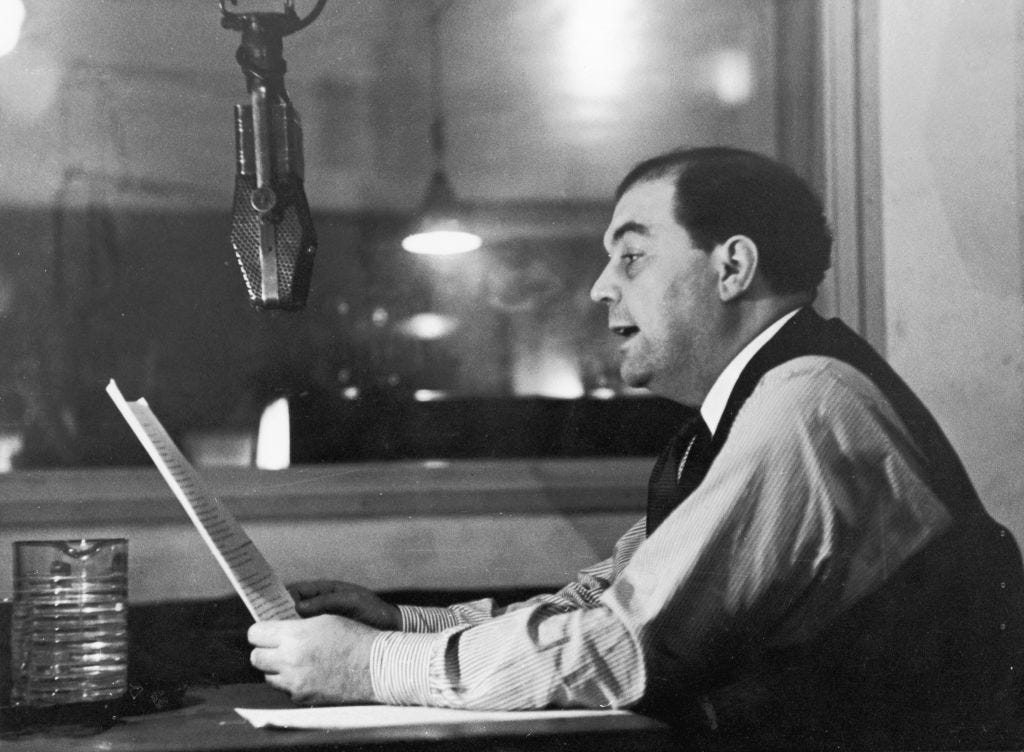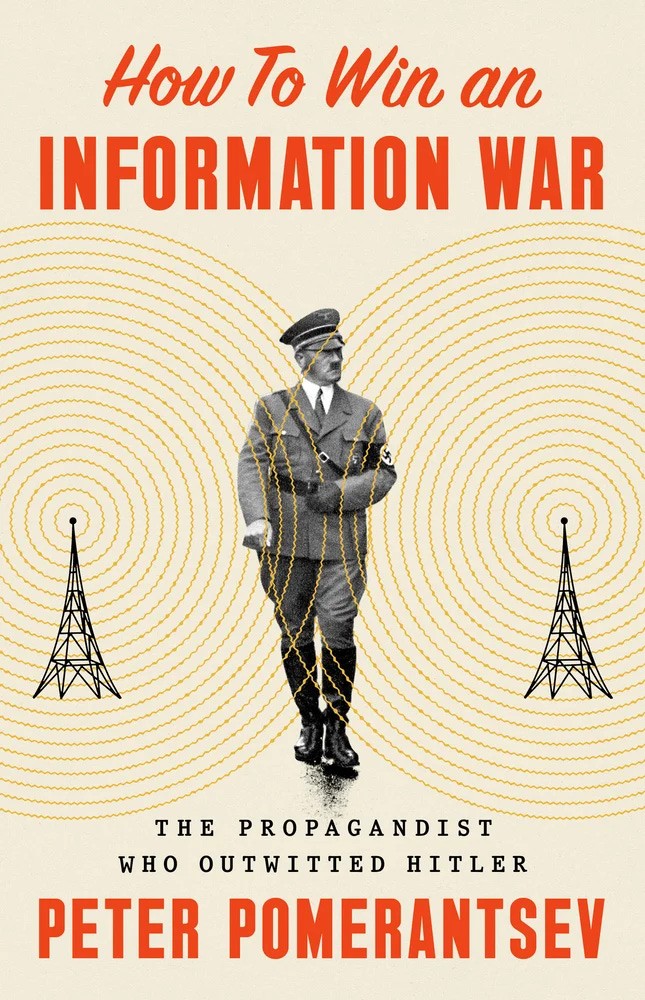How to fight lies
Author Peter Pomerantsev explains how authoritarian propaganda works -- and what we can learn from the information war against the Nazis
Join us for Live conversations this week!
This Thursday, July 31, at 12:30 p.m. Eastern, we’ll talk with Jonathan Mahler, a New York Times Magazine writer, about Zohran Mamdani and how change comes in New York.
To join and watch, download the Substack app (click on the button below) and turn on notifications — you’ll get an alert once we’re live, and you can watch, chat, and even participate in the conversation if you’re a supporting subscriber. If you’re using a computer, you can also watch on our homepage.
In his book How to Win an Information War, Peter Pomerantsev, a Ukrainian-born British author and academic and an expert on propaganda and information warfare — brings to life the remarkable story of a cunning World War II propagandist named Sefton Delmer (pictured above).
A British national raised in Germany, Delmer was the mastermind behind a series of enormously popular radio broadcasts that appeared to come from Nazis who had grown disenchanted with their party. But these broadcasters were no Nazis. They were only pretending in order to sow doubts about the Nazi party among German soldiers and citizens.
In his book, Pomerantsev also traces how Russians have deployed propaganda to bolster their invasion of Ukraine. We talked to him about the lessons that Delmer’s work offers in the age of Donald Trump and Vladimir Putin — and why winning a propaganda war sometimes means getting your hands dirty.
One thing you discuss in the book is how comforting propaganda can be. Why is that? And what did the Nazis offer people that gave them comfort?
I think most authoritarian propaganda really does three things. Number one is what you might call a kind of identification with the leader. We often wonder why authoritarian leaders, who are very narcissistic and hysterical and quite unpleasant in some ways, are so popular. Delmer and many other people of his generation – looking at Hitler – ended up concluding that their popularity is because they're so narcissistic and aggressive and hysterical. Because that allows their followers to display these kinds of repressed sides of themselves as well. They kind of make it OK to be the worst that one can be. To indulge in one's own desire for cruelty and narcissism.
The second is that at a time of tumultuous change – when group identities are crumbling, when old professions are literally disappearing, when we all feel a sense of anxiety from new technology and social change – authoritarian propaganda gives you a collective identity you can be part of.







